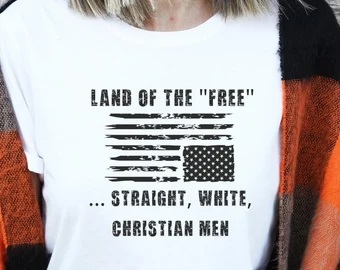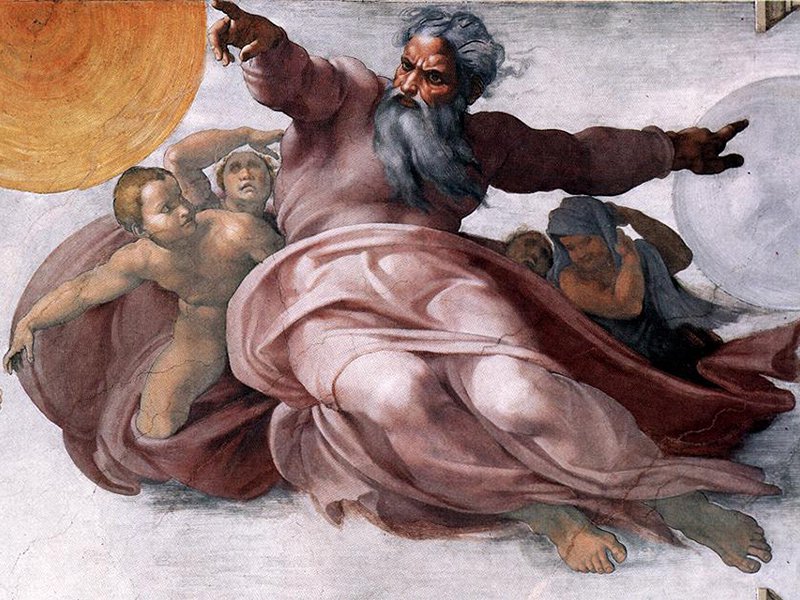Saturdays are for yard work, cleaning, and those errands that never end. My house and yard do not adequately reflect my efforts, or more accurately, they reflect my insufficient effort. Every Saturday we take my 90-year-old father to “supper”, as he has always called it. He eats alone too much since my mother died and I work to get him out of his apartment whenever possible. I prattle on because I think most people have this or more, in working, taking care of children, parents, animal family, and so on – scrambling in advance of another demanding week. Unremarkable but hectic. Sunday is as close as I come to a day of rest, and frankly, it is more restful if I ignore church.
I once told an Episcopal priest that I am an occasional Episcopalian. He said, “that just makes you Episcopalian”. Bless his heart. I should have said more accurately that I am a reluctant Episcopalian. When the US not-so-Supreme Court took away the protection of a woman’s right to choose, I became overwhelmed with the misogyny of this country. I wrote to the black, female priest at the church with which I am somewhat affiliated and said I would no longer participate in a liturgy that assumes a male god. She did answer my e-mail and offered to talk about it. Well, in my experience, talking doesn’t change much. Call me when you have a service where I don’t have to silently translate every “God the Father” to “Mother God”. In the unlikely event that any clergy are reading this, I am compelled to admit it was freeing to finally make a stand against church patriarchy – and very freeing to have Sundays wide-open.
It is my view that the Episcopal Church is more socially aware than most Christian denominations. We are officially welcoming and affirming (meaning not homophobic); we ordain women; we care about poverty and injustice. So, with all this in mind, I went to the “Friends of the Episcopal Church” Facebook page. I made a simple post that I didn’t expect to create much buzz, given my perception of the Church. My post and select responses follow.
I wrote: “I long for the Episcopal Church to find language that doesn’t assume God is male. Mine is not.” At the time of this writing today there were 182 comments.
“Let me suggest you seek council from Clergy.” Well, Mary, too many of them are male so that’s not happening.
“The day the Episcopal church goes non gender is the day I leave.” Tim got 41 replies to this including my favorite “bye bye” from Bebe.
Raymond went on a paragraph tirade that included “the Bible is the most reliable set of historical documents…” Well, herein lies a problem. This is what Joseph Campbell would call reading the Bible for denotation instead of connotation. I would say Raymond is stripping the Bible of the power of metaphor. It is historic in that it was compiled a long time ago, but it is simply not a history book. Raymond shot his argument in the foot by adding “Those who say the people of that time were under patriarchy are lazy and unintelligent”. I did thank him for calling me lazy and stupid so he would know I didn’t miss his insult posted to the church’s page.
There were also interesting and thoughtful responses. Someone referred me to the New Zealand prayer book, which I ordered online. (Thank you “NJ AG”.) That link led me to an author who is new to me, and I give her all due credit for inspiring part of this blog with, Spiritual Truth in the Age of Fake News, Elizabeth Geitz, Resource Publications, 2019. Here is her refreshing approach from the introduction: “Whether you view yourself as religious or spiritual or neither, the world we all live in has been shaped by a patriarchal biblical worldview based on the false belief that some people are second-class citizens and the Bible says it is so,” (p xiii-xiv). Thank you, Elizabeth.
Her book reads like short stories with Bible passages before each section and questions for reflection or discussion at the end. Sorry, Elizabeth, I skipped those parts, but the stuff in the middle was good. For the most part, she successfully addressed many examples of distorting the Bible to support patriarchy and the unfortunate consequences. Really, just knowing she’s employed clergy with this view is a relief.
Here is one of her most powerful quotes from the preface: “We need to shout from the rooftops that there has never been a divinely ordained hierarchy that puts men above women, whites above other races, Christianity above other religions, straights above gays, or rich above poor,” (p xv). In the epilogue she reminds us that over 800 biblical manuscripts were not discovered until 1940 which was well after the King James (KJV) translation resulting in evidence of inaccuracies in that, the most popular translation 9p 169). I assure you there are practicing Christians who don’t understand that any English version is a translation from Greek and Hebrew. If you have ever studied any other language than what you were born to, you know that translation always has nuances. Perhaps you may want to believe that the Christian Bible is infallible. I know many who do. Ok, which version? Are you reading it in Greek and Hebrew because even Jewish scholars spend years interpreting the shortest passages with wide disagreement.
Every time someone uses the Bible to demean or oppress others, you can already assume it’s false for that outcome alone. The Bible is not a cudgel and if it is used like that, it’s not Biblical. Geitz said, “Selective literalism has led to the abuse of using scripture to proclaim women as inferior, promote slavery, condemn homosexuality, turn away the stranger, promote of culture of fear rather than love, and more,” (p 170).
Allow me to stray slightly from the smart Biblical scholar to the tedious local. I see women all around me, plain Mennonites and Amish, who willingly wear head coverings not required of men. Make no mistake this means they are fully embracing their inferiority and subordination to men. Whether they are a more recent version that looks like a doily, or the full-out bonnet, it means the same thing. Of course, I support free expression, religious and otherwise, but I do not support a culture of women as inferior. This is the Christian hijab.
These men, the bishops of their church and their husbands and fathers, make all decisions. These women work the fields in dresses. One local bishop doesn’t even allow bicycles, his followers have to use scooters. My father once asked him why and he said something like, “That’s how it is.” And understand had I asked him, a mere woman, he would not have even answered me. I once tried to buy men’s work boots from a local Mennonite general store and the man would not even help me. I had to get my husband to ask him for the size I needed. Had I not needed them so badly, I would have left.
I understand why many men are so angry. They refuse to lose their grip. They will not give-up power. And they are perfectly willing to force raped young girls to give birth to prove that men are still in charge. Well, fellows, the world you yearn for is ugly, and failing. In whatever small way I can, I will keep fighting for dignity, compassion, and equity. Not because that’s what Jesus would do – though he would – because that is what I choose. You can beat me down but you can’t change how I see you. # -J.B.








 time when many Europeans, there and in the New World, believed hell was a real place and god resembled the Old Testament guy who was long on judgement and anger. This way of thinking produces narrow-mindedness. It is the perspective where Evangelical Christians, and some Muslim sects, are stuck. They live in the long-ago past, when the simple answer to every conundrum was: god’s will. These are immature, under-developed religions. Theirs is the Christianity of the Crusades.
time when many Europeans, there and in the New World, believed hell was a real place and god resembled the Old Testament guy who was long on judgement and anger. This way of thinking produces narrow-mindedness. It is the perspective where Evangelical Christians, and some Muslim sects, are stuck. They live in the long-ago past, when the simple answer to every conundrum was: god’s will. These are immature, under-developed religions. Theirs is the Christianity of the Crusades. recognize how much in life is out of my control. In this I choose a spiritual interpretation. I believe there are lessons available to me for this life that I did not master in my previous lives. The lessons are all the more crucial in times of pain and transition. I think back on the life of my friend’s father. I think I can see some of the pain he lived with and how it both drove him and haunted him. An Episcopal bishop once said, “Pain that is not transformed is transmitted.” I saw evidence of both in the time I knew him. I also see evidence in the emotional legacy he passed-on to his daughters. Exactly like my birth family, the daughters did not enjoy the same benefits as the son, materially or psychologically. So the family mimics society, and society mimics the family; but that doesn’t change my desire to be treated more fairly by my father, my church, my country. I accept I will never be my father’s son. I do not accept the bad choices of others to treat me as less because of it. I can’t change their choices or the outcomes of those choices, but I will not embrace them as fate and certainly not divine design. -J.B.
recognize how much in life is out of my control. In this I choose a spiritual interpretation. I believe there are lessons available to me for this life that I did not master in my previous lives. The lessons are all the more crucial in times of pain and transition. I think back on the life of my friend’s father. I think I can see some of the pain he lived with and how it both drove him and haunted him. An Episcopal bishop once said, “Pain that is not transformed is transmitted.” I saw evidence of both in the time I knew him. I also see evidence in the emotional legacy he passed-on to his daughters. Exactly like my birth family, the daughters did not enjoy the same benefits as the son, materially or psychologically. So the family mimics society, and society mimics the family; but that doesn’t change my desire to be treated more fairly by my father, my church, my country. I accept I will never be my father’s son. I do not accept the bad choices of others to treat me as less because of it. I can’t change their choices or the outcomes of those choices, but I will not embrace them as fate and certainly not divine design. -J.B.








